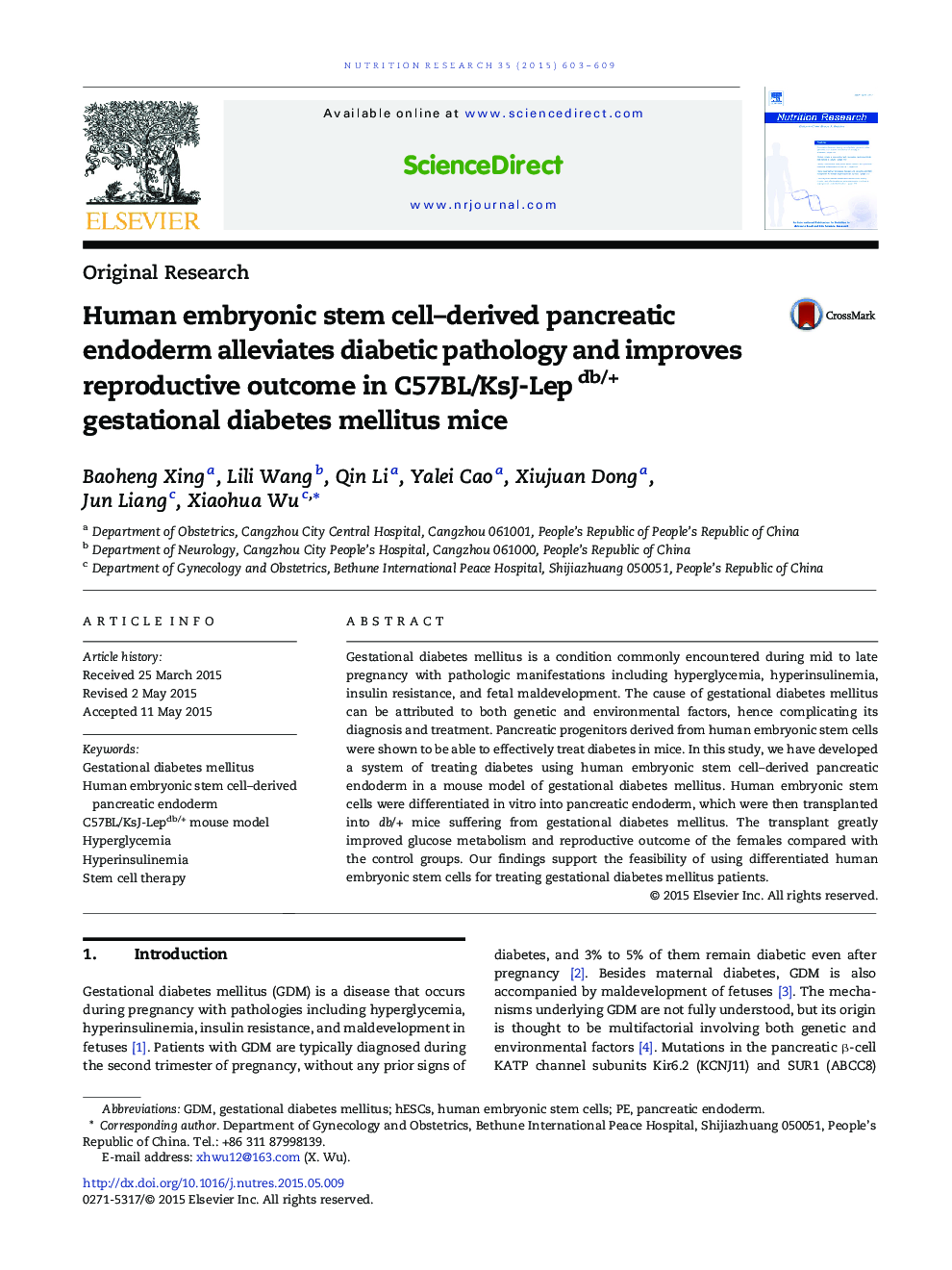| Article ID | Journal | Published Year | Pages | File Type |
|---|---|---|---|---|
| 2808904 | Nutrition Research | 2015 | 7 Pages |
Gestational diabetes mellitus is a condition commonly encountered during mid to late pregnancy with pathologic manifestations including hyperglycemia, hyperinsulinemia, insulin resistance, and fetal maldevelopment. The cause of gestational diabetes mellitus can be attributed to both genetic and environmental factors, hence complicating its diagnosis and treatment. Pancreatic progenitors derived from human embryonic stem cells were shown to be able to effectively treat diabetes in mice. In this study, we have developed a system of treating diabetes using human embryonic stem cell–derived pancreatic endoderm in a mouse model of gestational diabetes mellitus. Human embryonic stem cells were differentiated in vitro into pancreatic endoderm, which were then transplanted into db/+ mice suffering from gestational diabetes mellitus. The transplant greatly improved glucose metabolism and reproductive outcome of the females compared with the control groups. Our findings support the feasibility of using differentiated human embryonic stem cells for treating gestational diabetes mellitus patients.
